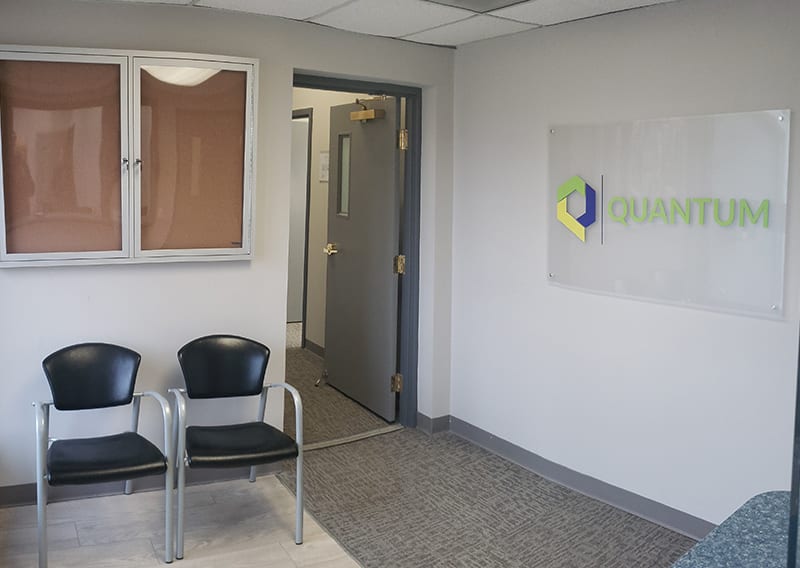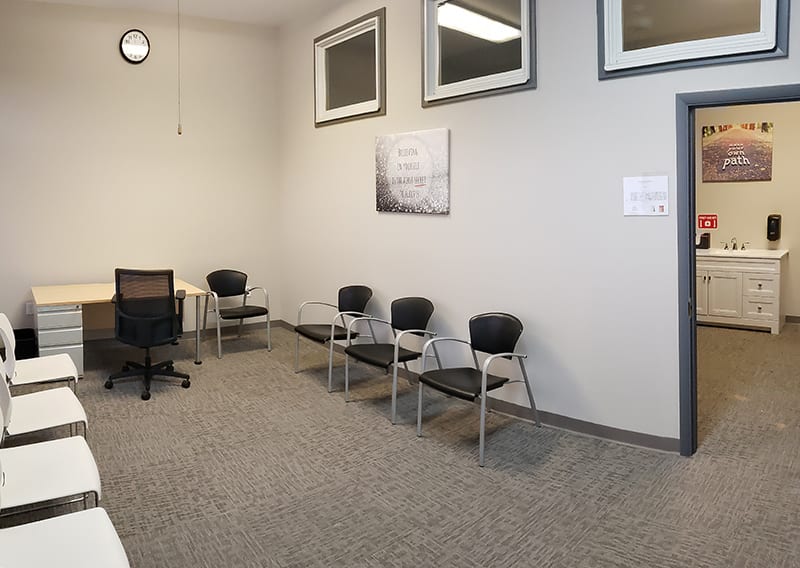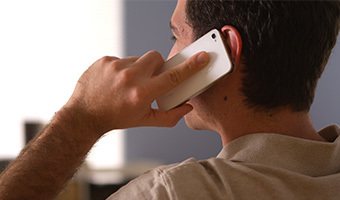Our facility is a warm, inviting, cozy, and secure environment that provides the perfect level of safety, comfort, and privacy as you receive treatment and get on your path to wellness. We’ve designed our space to allow for a low-stress environment where you can focus on your well-being.
Given the concerns of the COVID pandemic, we’re ensuring procedures are followed to create a clean environment for our patients, staff, and visitors. We’ve gone above and beyond CDC and New Jersey State guidance to design our cleaning and disinfecting protocol so that there is no question of the cleanliness and safety of our facility.
You’re here to get well and our priority is maintaining a safe, clean, peaceful, and welcoming environment for you to do just that.
To see our response to Covid-19, click here.
Photo Gallery
Click photos to enlarge
Are You Ready to Begin Your Journey to Recovery?
You could be completely covered. Verify Your Insurance Today.
The Quantum
Process Outpatient Rehab NJ
1. Make the Call
Contact our Quantum Team at
(609) 993 – 0733 to get started.
2. Complete
Your Intake
This streamlined process includes a series of questions and discussion of your unique needs and goals.
3. Get the Best Care Team Possible
After your intake, you’ll meet your Care Team, a group of amazing professionals dedicated to helping you make recovery reality.
4. On-Going Support
After you meet your Care Team, you’ll start to receive treatment based on a Care Plan that’s designed to help you achieve and sustain your recovery.
What is Dilantin?
Dilantin phenytoin is an anticonvulsant medication, also known as anti-seizure or antiepileptic medication. As an oral prescription medication, it is available in Dilantin extended-release capsule, chewable tablet, or liquid syrup to prevent and treat certain types of seizures, particularly tonic-clonic grand mal seizures (ones that affect the whole brain). Taking phenytoin (Dilantin) can also help treat arrhythmia (irregular heartbeat) and neuropathic pain. Anticonvulsant medications like Dilantin are sometimes used off-label to treat behavior or mood disorders like bipolar disorders. Dilantin phenytoin is a very crucial medicine used to treat status epilepticus, seizures that occur following surgery, or seizures that occur in the hospital. US brand names of Dilantin include:
- Dilantin
- Dilantin-125
- Dilantin Infatabs
- Phenytek
Dilantin Effects
As an antiepileptic drug, Dilantin works by slowing down impulses in the brain that cause tonic-clonic grand mal seizures and partial seizures. It is thought to affect the sodium channels in the neurons and reduce unrestrained neuronal firing, which is associated with seizure activity. Like many anticonvulsant medications or medication in general, Dilantin can have some serious side effects. Dilantin phenytoin produces significant changes in a body’s chemistry. Dilantin may cause some side effects such as:
- Bleeding of gums, similar to gingivitis
- Stomach cramps, nausea, and/or loss of appetite
- Increased hair growth
- Decreased coordination, dizziness, and mild problems with attention
- Hypotension (low blood pressure)
- Insomnia
- Chest pain from heart problems
- Mild Tremors
- Slow heartbeat
- Agitation or restlessness
- Angry or violent
- Suicidal thoughts or behavior
- Some people may also be allergic to phenytoin.
Signs of Dilantin Abuse and Addiction
Dilantin phenytoin is not a drug of abuse. It does not produce significant euphoria even though it can be used to treat some forms of pain and is not considered a controlled substance by the US Drug Enforcement Administration (DEA). There are very few case accounts of anticonvulsant medication abuse and it is usually in the context of other drug abuse, including drinking alcohol while taking Dilantin. Often those who misuse Dilantin with drug abuse, also have a co-occurring cognitive disorder or psychiatric/psychological disorder such as post-traumatic stress disorder, anxiety, or depression. Drinking alcohol while taking Dilantin will reduce the medication’s effectiveness and may increase the side effects of Dilantin, including an increased risk of tonic-clonic grand mal seizures and partial seizures. There are several drug interactions with Dilantin as well, including supplements, over-the-counter medicines, and herbal products.
Taking too much Dilantin can lead to phenytoin toxicity and overdose which can include symptoms such as:
- Loss of balance
- Fainting
- Feeling light-headed
- Nausea
- Muscle stiffness or weakness
- Tremor
- Slurred speech
- Unusual movement of the eye
- Vomiting
- Slow heartbeat and slow or shallow breathing
Dilantin Withdrawal Symptoms
Stopping Dilantin suddenly can lead to an increased risk of seizures, including tonic clonic grand mal seizures and temporal lobe epilepsy.
Long-Term Side Effects of Dilantin Abuse
Dilantin phenytoin is very effective for treating seizure disorders and seizures that occur in the hospital, status epilepticus, however, there are some serious side effects to Dilantin with long-term use. Your doctor has prescribed anticonvulsant medications because the benefits outweigh the side effects. If you are experiencing some intense side effects, especially issues with your heart, chest pain, or are allergic to phenytoin, you should contact your doctor immediately Some long-term effects of Dilantin include:
- Liver disease and yellowing of the skin
- Suicidal thoughts or behavior
- Osteopenia osteoporosis
- Birth defects, if taken during pregnancy
- Bone marrow problems
- Insomnia
- Neuropathy
Dilantin Addiction Treatment
Dilantin is not a medication that leads to substance abuse. However, if you are dealing with substance abuse and taking Dilantin, it can decrease its effectiveness and you should not drink alcohol while taking Dilantin. If you are suffering from alcohol and substance abuse while taking antiepileptic drugs, you should get help from drug rehab. You can also cause serious side effects from substance abuse while on Dilantin including liver disease and osteoporosis. Drug rehab can help you with your substance abuse disorder through evidence-based treatment such as individual therapy, medication-assisted treatment, medical detox, 12-step programming, group therapy, and family therapy.
If you or someone you love is struggling with drug or alcohol addiction, help is available. Our addiction specialists at Quantum Behavioral Health Services are available to answer your questions about drug rehab.








